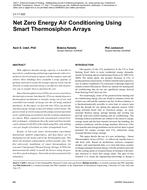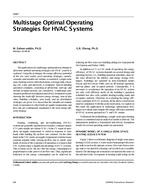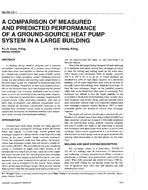The internal radiological exposure of the general population is largely due to the airborne daughter products of radon and thoron, which are found in two states, attached to aerosols or unattached, of which the latter species according to several dose models have the highest radiological dose efficiency of the two.
The radon daughters may be removed from indoor air by a series of processes like ventilation, filtration, plateout, and electrostatic deposition. Ventilation (with radon-free air) is, on the one hand, a very effective measure, but. usually involves introduction of colder air, in variance with energysaving efforts.
Internal filtration will not. affect the radon concentration but may reduce the level of daughter activities, roughly inversely proportional to the filtration rate. At the same time, however, filtration may also change the aerosol distribution and concentration of the air and, consequently, the partitioning of the radon daughters between the attached and unattached state. This, in turn, influences the rate of deposition of radon daughters both by diffusional plateout. and as an effect of an electric field.
Experiments are reported demonstrating reductions in the airborne potential alpha energy by factors of 4 to 5 by use of filtration rates of 3-4 times per hour. In case of low aerosol concentrations, however, the corresponding reduction in radiological dose to critical parts of the respiratory tract may be much smaller, due to the shift toward higher fractions of the radon daughters being in the unattached state caused by the filtration. The possibility of. using electrostatic deposition of radon daughters is also discussed.
Units: SI
Citation: Symposium, ASHRAE Transactions, 1985, vol. 91, pt. 2B, Honolulu, HI
Product Details
- Published:
- 1985
- Number of Pages:
- 7
- File Size:
- 1 file , 650 KB
- Product Code(s):
- D-HI-85-39-4


